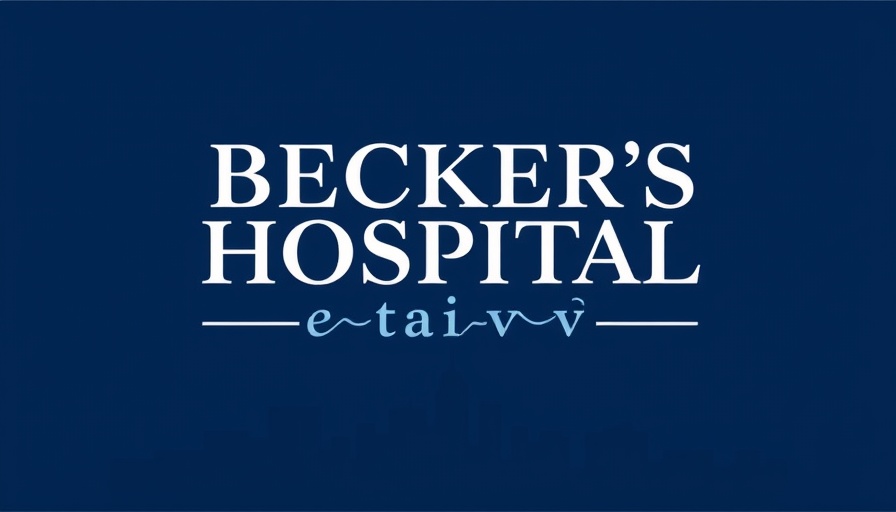
The Fragile Landscape of Hospital Mergers and Collaborations
In recent years, the healthcare industry has witnessed a notable shift in the dynamics of hospital mergers, affiliations, and partnerships. Factors like evolving financial pressures, regulatory scrutiny, and changing strategic priorities have made once-promising collaborations increasingly fragile. This trend has manifested in a series of high-profile hospital deals being called off or terminated, highlighting the challenges facing healthcare systems today.
A Closer Look at Disrupted Deals
Just in the past year, several hospital partnerships that once held significant promise have unraveled:
- Baptist Health and UF Health: A long-standing partnership in pediatric services has come to an end as Baptist Health in Jacksonville, Florida, decided to terminate its collaboration with UF Health of Gainesville. This move will see Nemours Children’s Health step into providing pediatric care at Wolfson Children’s Hospital starting in 2026. The sudden nature of this decision left UF Health “surprised and disheartened,” showcasing the unpredictability in hospital partnerships today.
- Adventist HealthCare and Howard University Hospital: After managing Howard University Hospital for a few years, Adventist HealthCare in Maryland has walked away from its pursuit of acquiring the 482-bed facility, ending its management services agreement set for termination by 2026.
- Valley Medical Center and UW Medicine: Valley Medical Center in Renton, Washington, has opted to end its strategic affiliation with Seattle-based UW Medicine. Following a partnership that began in 2011, the board at Valley Medical cited shifting needs and the evolving healthcare landscape as factors leading to this decision.
- Samaritan Health Services and Santiam Hospital: The proposed merger between these two Oregon-based health services fell through amid financial pressures, leaving both organizations to rethink their next steps.
- Oregon Health & Science University and Legacy Health: Just months after signing a definitive merger agreement, these two organizations decided that remaining independent best served their interests, as they navigated an rapidly evolving operating environment.
- Fairview Health Services and Essentia Health: The proposed $1 billion merger faced rejection from Fairview, as leaders cited insufficient value to their staff and patients, leading to uncertainty in their future with the University of Minnesota.
The Impact on Patient Care and Community Health
These unexpected terminations can have profound implications for patient care, medical staff, and the communities these hospitals serve. With partnerships dissolving, healthcare providers may face setbacks in their ability to offer comprehensive, coordinated care. The disruptions can also derail planned initiatives that aimed to enhance patient engagement tools and other healthcare automation programs designed to improve overall efficiency and service delivery.
Trends Shaping The Future of Healthcare Partnerships
As we look forward, several trends appear poised to influence future healthcare partnerships. The growing adoption of remote therapeutic monitoring (RTM) programs and AI-driven solutions in medical offices may present new avenues to improve practice efficiency. With technology at the forefront, healthcare organizations must prioritize integrating these digital tools to boost revenue optimization and enhance patient engagement.
Decisions You Can Make With This Information
For independent practitioners and community healthcare providers, understanding these trends is crucial for adapting their strategies. Evaluating the efficiency of operations and exploring viable partnership options can be key to weathering the shifts in the healthcare landscape. Adopting automation and AI tools can drive a more streamlined medical billing process and improve compliance, ultimately benefiting patient outcomes and practice profitability.
What Lies Ahead: Reflecting on Hospital Collaborations
The wave of terminated partnerships this year underscores the tension and challenges within the healthcare sector. As independent physicians, nurse practitioners, and allied health providers navigate this evolving landscape, it’s crucial to remain informed and adaptable. Future collaborations will likely depend not only on financial viability but also on a shared vision for patient-centered care.
Embracing collaborative approaches while leveraging technological advances may become pivotal strategies for independent practices looking to thrive.
Ultimately, being aware of these disruptions allows healthcare providers to prepare better and make informed decisions that align with their goals and patient needs. By focusing on effective automation, financial management, and patient engagement, healthcare professionals can position themselves for success despite the challenges of an evolving landscape.
If you want to stay ahead in your practice, consider exploring tools that enhance automation in your workflows. There are numerous healthcare business tools available designed to address billing, compliance, and patient tracking issues effectively. Don’t miss the chance to optimize your practice and enhance patient experiences!
 Add Row
Add Row  Add
Add 




 Add Row
Add Row  Add
Add 

Write A Comment